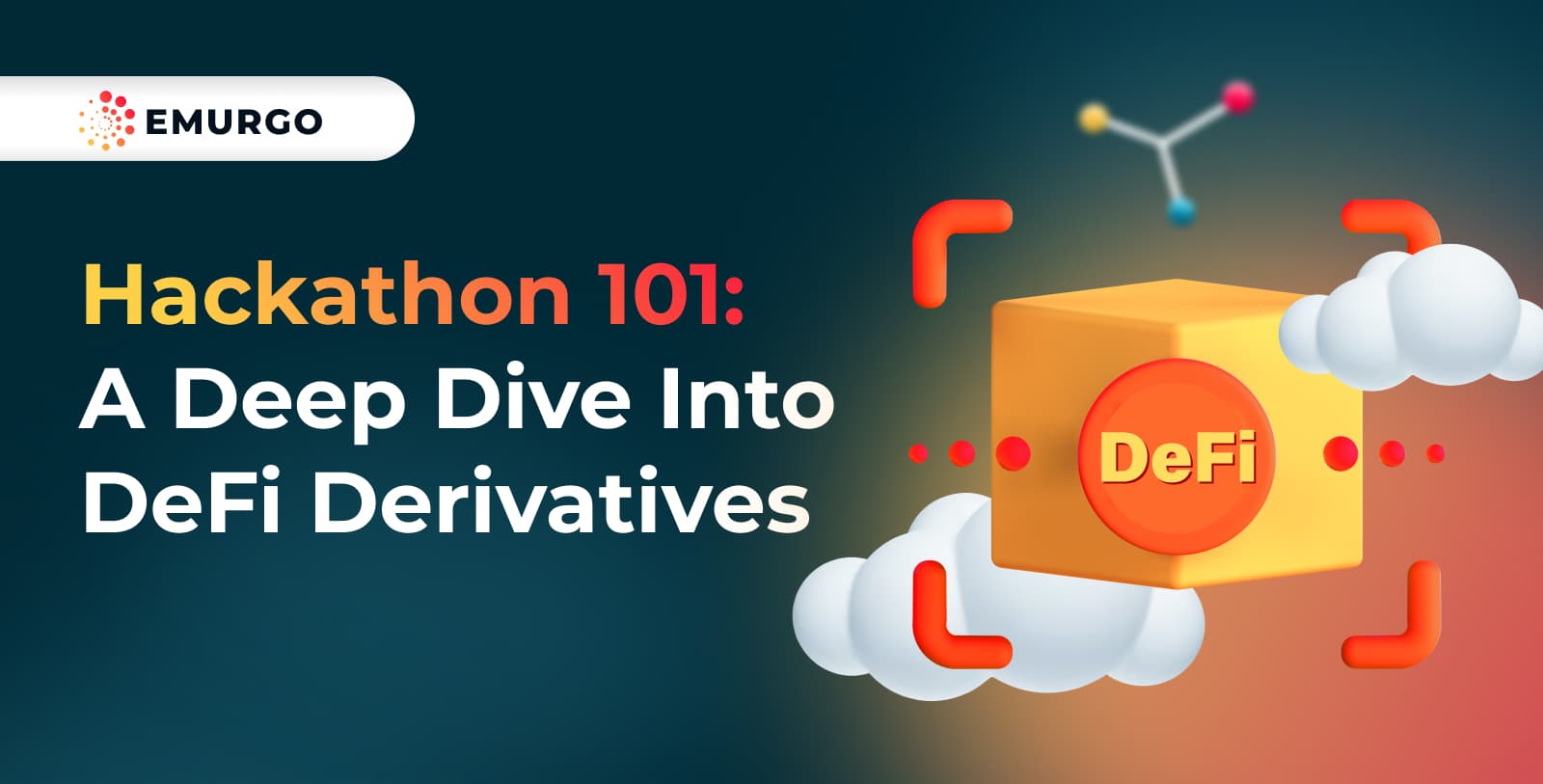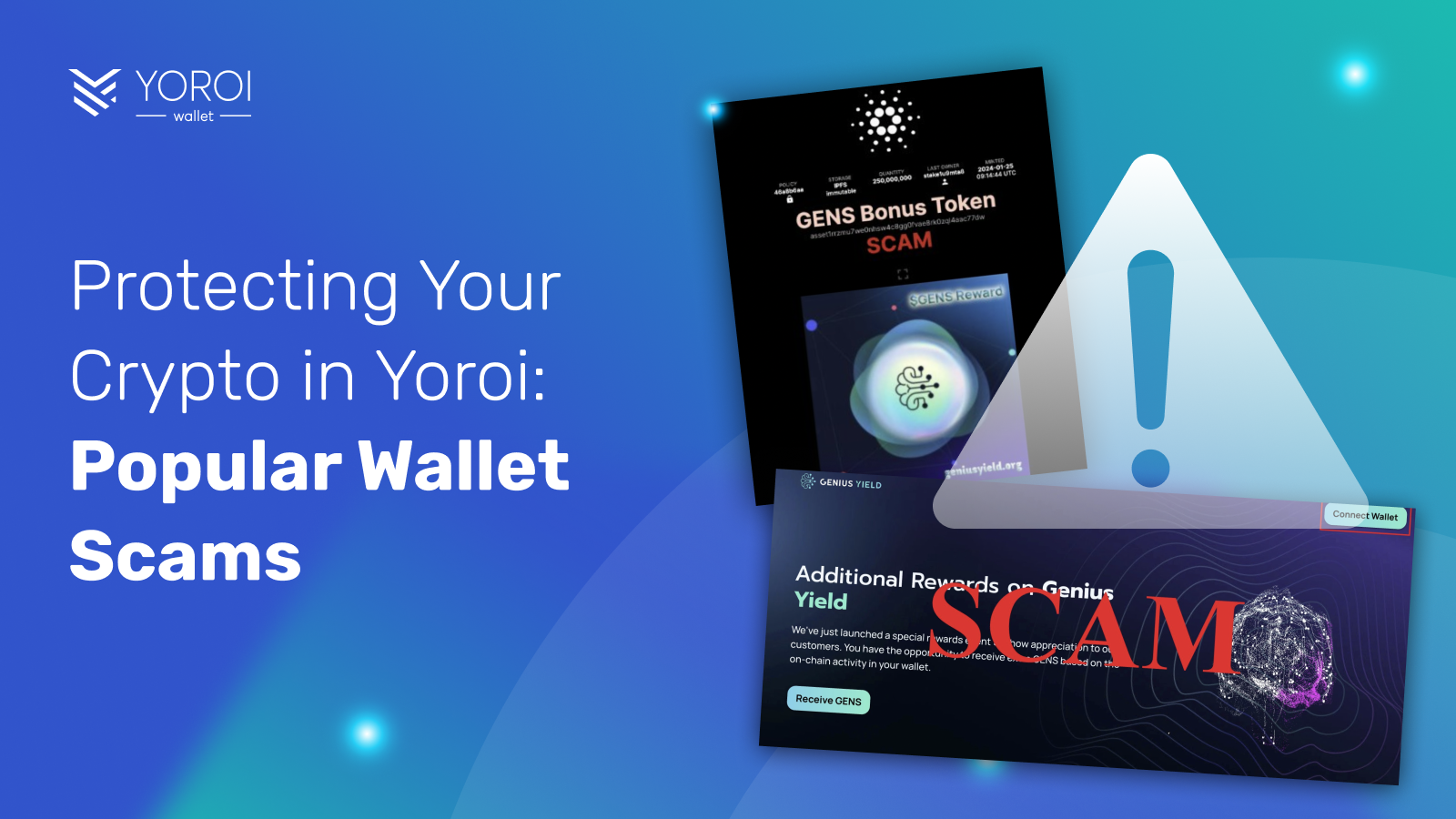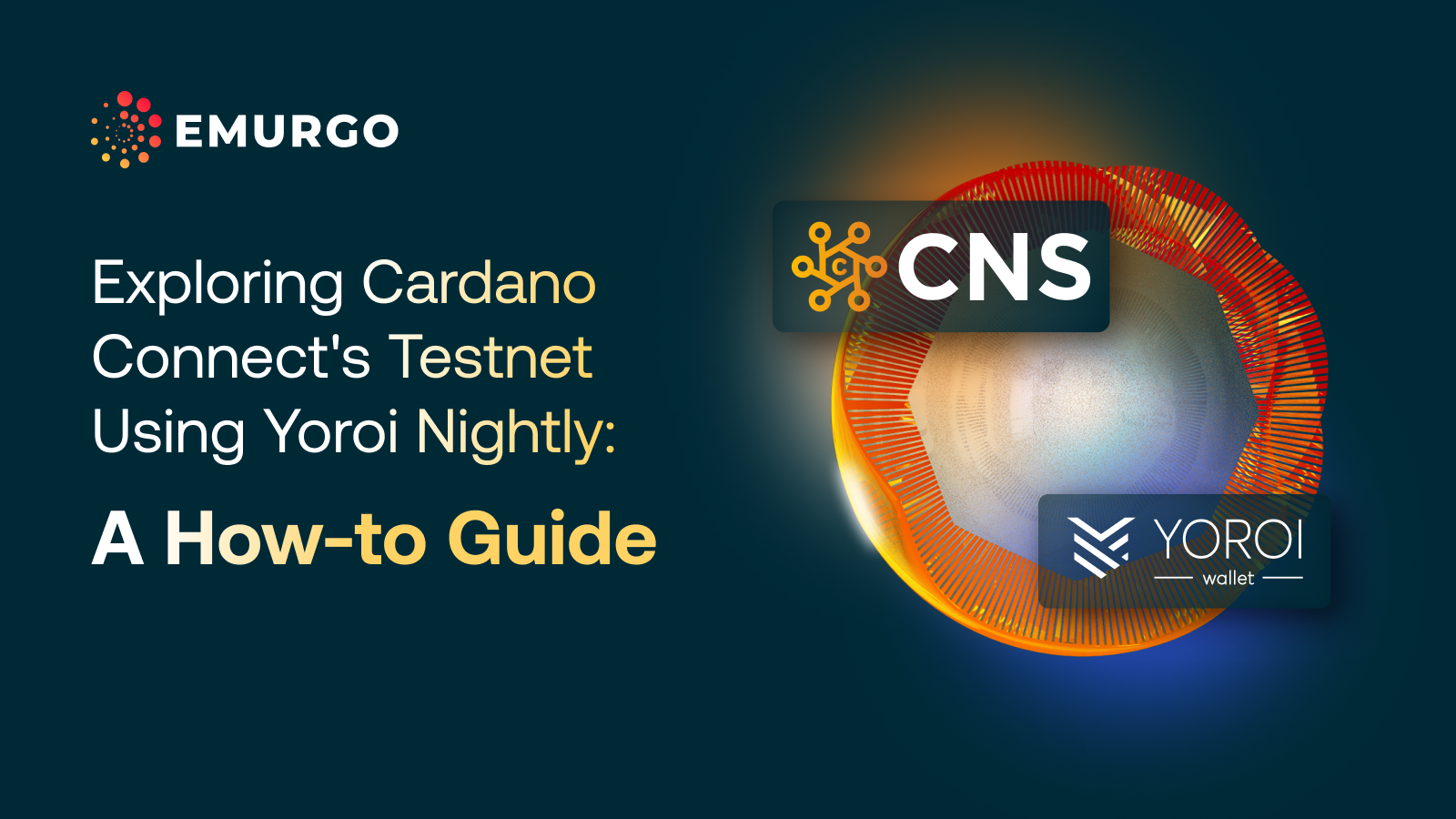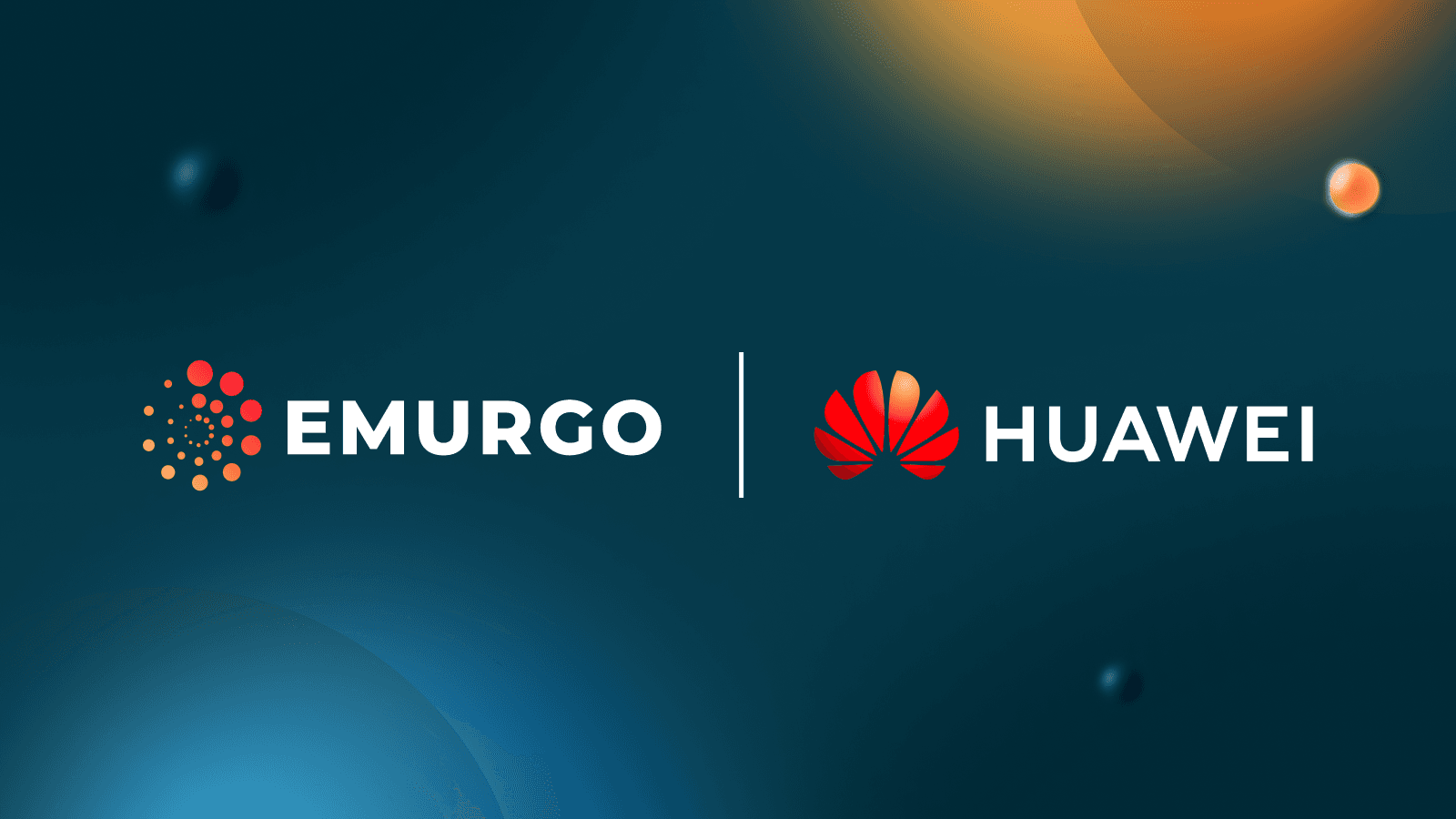Web3 or blockchain hackathons are a great opportunity for anyone to be technically creative, experiment and build products & services, and also network with other developers, entrepreneurs, and investors. Web3 or blockchain hackathons have become very popular in 2023 due to the recent rise of crypto, DeFi, and NFTs, and many of these hackathons are virtual which allows for a global pool of participants.
In this blog, we take a deep dive into a particular track or concept for blockchain hackathons: derivatives. These types of products can provide useful services to a blockchain network and its decentralized finance (DeFi) ecosystem and are one possible area developers can focus on during a blockchain hackathon.
Derivatives and DeFi

Derivatives are the foundation of any decentralized finance (DeFi) ecosystem. Crypto derivatives bring much more variety for traders to buy and sell, and enable traders to make calculative predictions on the future price of the underlying cryptocurrencies. The potential price movement of the underlying asset and its derivative products can potentially help traders to book more profits (or less) compared to buying assets on a spot market. According to a Reuters report, crypto derivatives volume on centralized platforms rose to $3.12 trillion in July 2022.
So what does this mean?
In the world of DeFi derivatives, tokenization refers to a process where a “digital derivative” of an asset is created on a blockchain, authenticating its transaction and ownership history. This approach incrementally empowers a new way to trade assets like stocks, and bonds allowing the transfers to be visible on a public ledger.
DeFi derivatives have had a significant impact on the ecosystem.
Despite the 2022 bear market, leading players have performed well and traditionally, derivatives trading has only been available to institutional traders. However, DeFi and DEXes (decentralized exchanges) have enabled many outside of this group to access these products.
Additionally, derivatives are increasingly popular with strong advantages over their centralized counterparts. Many of these factors include hedging against the market, organic growth, capital efficiency, and real yields.
With the ability to tokenize securities, DeFi derivatives are poised to transform not just the derivatives market, but also the overall securities and financial market. According to BlackRock, “the next generation of securities markets will be tokenization of assets through distributed ledgers.”
For instance, crypto-based derivatives for DeFi can include products such as:
-
- Crypto Futures
-
- Crypto Swaps
-
- Crypto Options
-
- Perpetual Contracts
Crypto Futures
Crypto Futures are a type of future contract that are a large part of DeFi derivatives and are immensely popular among crypto traders. Traders use crypto futures to speculate on the future price of assets including cryptocurrencies without actually owning them. One reason for its popularity is that it operates purely based on price action which makes future contracts more fluid and easy to handle. In short, future trading is a bet on the future price movement of the currency wherein, two parties agree to buy or sell assets such as digital currencies, on a predetermined date and price.
Crypto Swaps
In the past, crypto swaps traders had to sell their cryptocurrencies, convert them into fiat and then purchase another cryptocurrency with the fiat currency. This method quickly turned out to be an expensive and inefficient way to trade between coins which led to the introduction of “token swaps.”
With token or crypto swapping, traders can easily trade one crypto for another without the need for an expensive crypto-to-fiat transfer. Crypto swaps help users navigate the native blockchain ecosystem while also offering them the opportunity to vote on community governance proposals that decide the future of the project and allow them to stake their crypto to earn a steady passive interest income.
Crypto swaps (DEX swaps) on decentralized exchanges or DEXs are peer-to-peer transactions regulated by self-executing smart contracts which don’t require any third-party involvement. With a DEX, users have more anonymity while making transactions along with control over their privacy and an improved sense of security.
Read more: All you need to know about a Web3/blockchain hackathon
Crypto Options
Crypto option trading is similar to crypto futures. Although crypto options and futures share similar trading fundamentals under derivatives wherein the contracts are tied to the underlying asset, they operate on two very different trading strategies.
The main difference between the two is that unlike crypto futures, crypto option traders are not obligated to buy or sell the asset at a predetermined price and date.
Buyers can do so by purchasing the right at a premium to reduce their risk of loss and avoid potential liquidation associated with future contracts.
Perpetual Contracts
This type of derivative allows traders to speculate on the price of an asset by using one’s tokens as collateral and creating a leveraged position.
Unlike a futures contract as the name suggests, perpetual contracts have no expiration date which means you can hold the position as long as you want to.
This means that traders can speculate on the price of an asset. For example, if you speculate that the price of the asset will go up and it does, you can close your position and receive more tokens. But if the price goes down, you will be forced to close your position with lesser tokens.
In a blockchain hackathon, participants can utilize some of the ideas above, build a platform that reduces the risk of loss and liquidity, or a fully on-chain margin management tool that doesn’t require a central party or oracle price feed by integrating a blockchain network.
Follow EMURGO to register for future Cardano hackathons

Interested in participating in a future Cardano blockchain hackathon?
Then, follow Cardano’s founding entity and commercial arm EMURGO on Twitter to stay up-to-date on news and announcements.
About EMURGO
-
- Official Homepage: emurgo.io
-
- Twitter (Global): @EMURGO_io
-
- YouTube: EMURGO channel
-
- Facebook: @EMURGO.io
-
- Instagram: @EMURGO_io
-
- LinkedIn: @EMURGO_io



